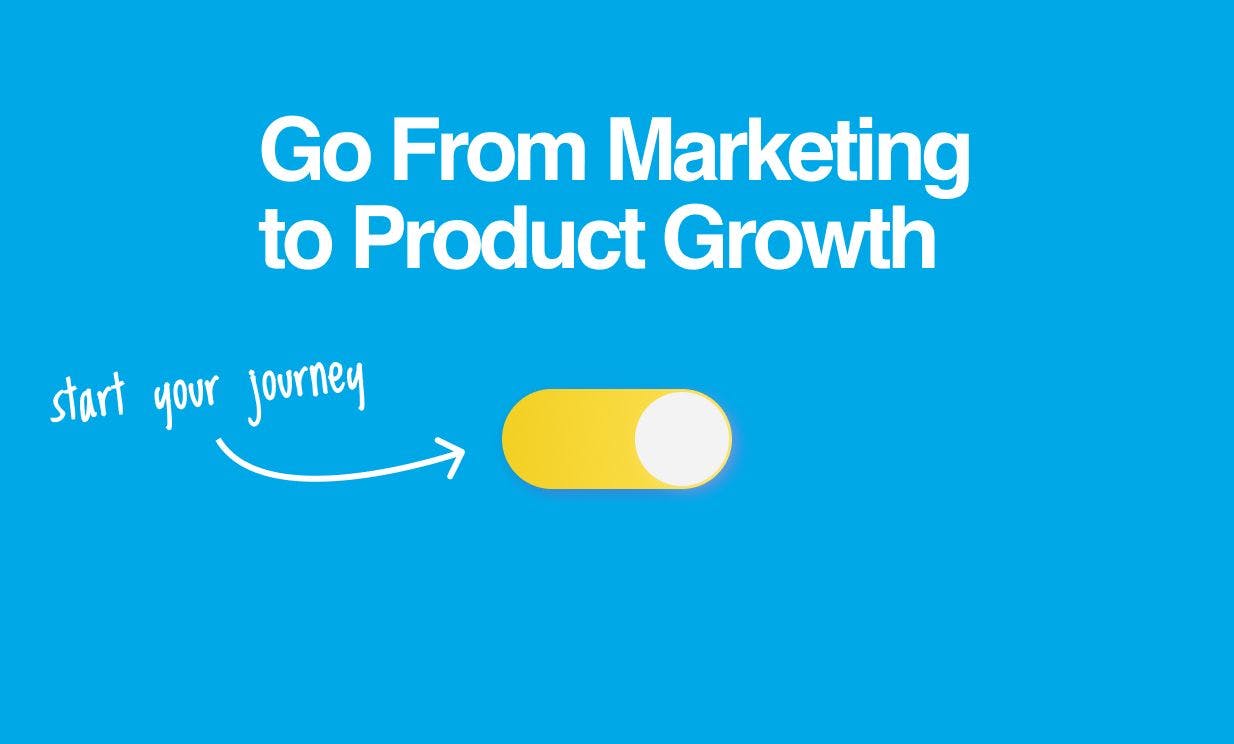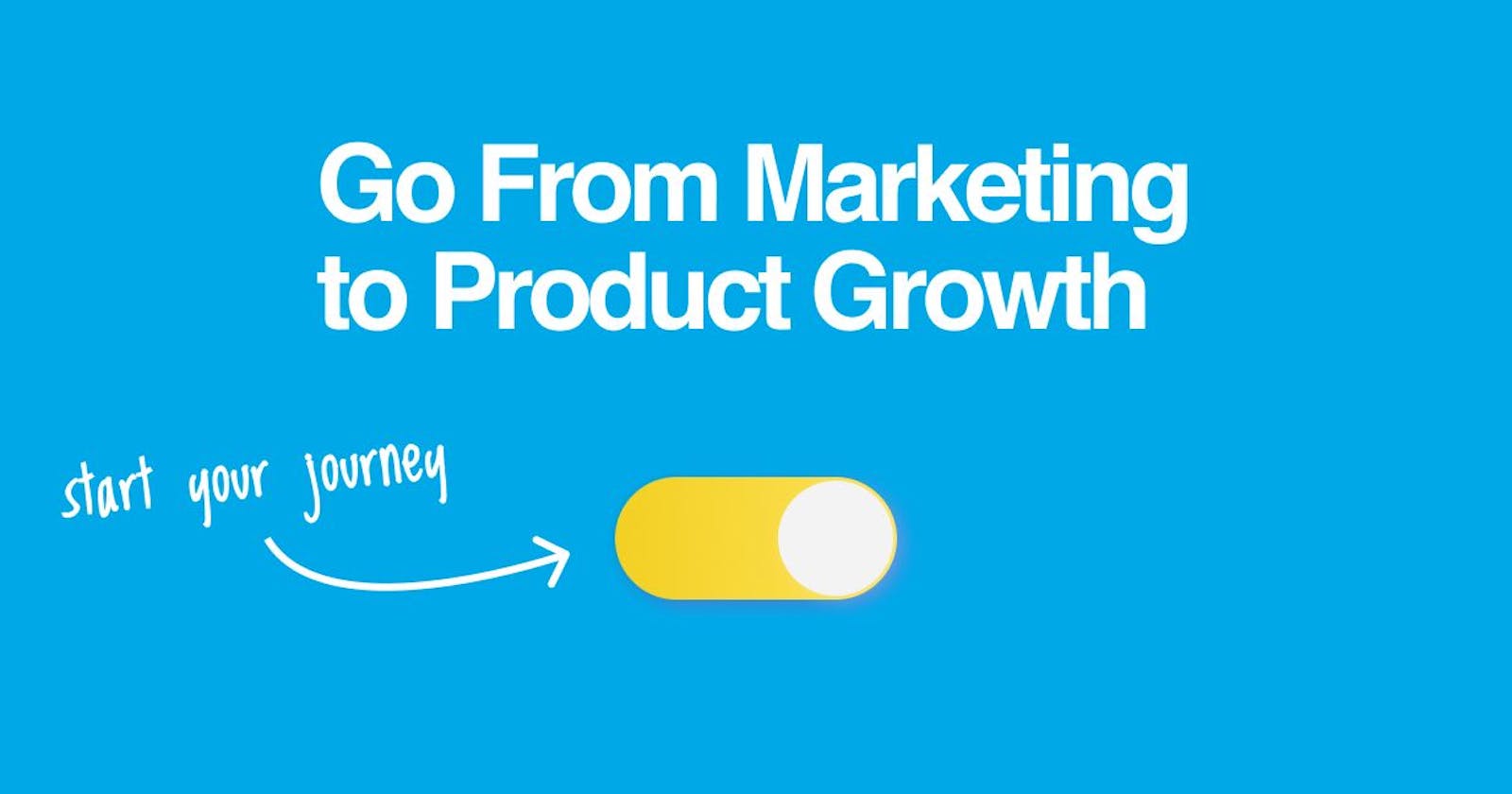From Marketing Savvy to Growth Product Mastery: Leveraging a Marketing Background for Customer Acquisition and Product Scaling

There has been a shift in the modern business landscape. The evolution of data-driven, digitally connected markets has given rise to new roles that combine traditional skills with technology's new opportunities. Among these exciting new roles is that of the Growth Product Manager, a dynamic position that leverages traditional marketing principles and technical skills to achieve robust customer acquisition and scaling.
If you have a background in marketing and are contemplating diving into the more technical realm of growth product management, this blog post is for you. We will explore how your marketing expertise can be an invaluable asset in growth product management and how you can effectively leverage engineering resources to drive product scaling.
Leveraging Your Marketing Background for Customer Acquisition
A strong background in marketing equips you with a solid understanding of buyer behavior, the ability to develop compelling value propositions, and the skills to communicate these effectively. These capabilities form the backbone of customer acquisition strategies in growth product management.
Data-Driven Marketing: In this digital age, marketing has become increasingly data-driven. Your experience in leveraging customer data for segmentation, targeting, and positioning can play a significant role in identifying potential growth opportunities. The ability to analyze and interpret data can guide the development of product features that meet customer needs and drive adoption.
Customer-centric Approach: With a marketing background, you’re already accustomed to adopting a customer-centric approach. This mentality is crucial for growth product managers. You understand that the customer should be at the center of product development, ensuring that all features and changes align with customer needs and preferences.
Brand Storytelling: Marketing professionals are adept at brand storytelling, a vital skill in communicating the product's value proposition effectively. The ability to weave compelling narratives around your product can boost customer engagement and promote a higher conversion rate.
Transitioning to Technical Tactics in Marketing
While a marketing background provides a strong foundation for customer acquisition, growth product management requires a more technical, data-driven approach.
Marketing Technology (MarTech) Stack Mastery: Growth product managers must have a good grasp of the marketing technology stack. Mastery of tools for CRM, marketing automation, analytics, and social media management can help you execute effective growth strategies.
A/B Testing: Understanding the principles and application of A/B testing is essential. This technique allows you to test different versions of product features, user interfaces, or marketing messages, helping identify the most effective options.
Search Engine Optimization (SEO): The knowledge of SEO can help you ensure your product appears in relevant searches, increasing visibility and driving organic traffic.
Leveraging Engineering Resources for Product Scaling
In growth product management, a key role is to drive the product’s scalability. This is where your collaboration with the engineering team becomes critical. Here are a few strategies on how to do it effectively.
Speak Their Language: It's crucial to bridge the communication gap between the marketing and engineering teams. Learning basic coding, understanding software architecture, and being familiar with Agile methodologies can significantly improve your collaboration with engineers.
Prioritize Experiments: Develop a clear roadmap for growth experiments, prioritizing those with the highest potential impact. Be transparent with your engineering team about these priorities and the potential benefits to the product and company.
Embed Analytics in Product Development: Work with engineers to embed analytics into the product. This enables data collection for meaningful insights into user behavior and product performance, which helps guide future development and scaling strategies.
Scale-Out Experiments: Once an experiment proves successful, you'll need to roll it out at scale. Your engineering team will play a crucial role in this process, ensuring the robustness and efficiency of the scaling process.
Encourage an Experimental Culture: Foster a culture of experimentation within your engineering team. Encourage them to think outside the box and explore different approaches, as this promotes innovation and can lead to breakthroughs in your growth strategies.
Conclusion
Transitioning from a traditional marketing role to a growth product management position may seem daunting. Still, the overlap in skills and techniques is significant. By leveraging your marketing background, adopting a more technical approach, and efficiently collaborating with engineering resources, you can become a proficient growth product manager, driving substantial customer acquisition and product scaling. The era of Growth Product Management is upon us, and it's time for marketers to seize this opportunity.

